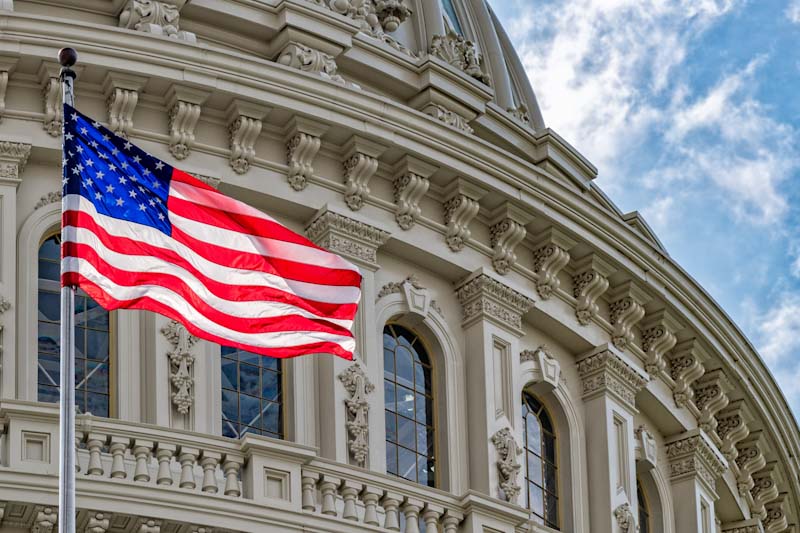This website uses cookies so that we can provide you with the best user experience possible. Cookie information is stored in your browser and performs functions such as recognising you when you return to our website and helping our team to understand which sections of the website you find most interesting and useful.
News
Bi-weekly Legislative Update: U.S.-China Trade Negotiations Productive & USMCA Update
U.S.-China Trade Negotiations
The U.S. and China held two days of deputy-level trade talks this week. Both Washington and Beijing described the negotiations that ended last Friday as “productive.” Treasury Secretary Steven Mnuchin announced that Chinese Vice Premier Liu He is bringing a delegation to Washington next week to take the trade negotiations to a higher level. Prior to the talks, President Trump delayed a planned tariff increase of $250 billion on Chinese goods for 15 days as a goodwill gesture. The President said the U.S. is not seeking an interim trade agreement with China but instead wants a “complete deal.”
USMCA
The Trump Administration and House Democrats continue to make progress on the United-States-Mexico-Canada Agreement (USMCA) this month. House Democrats in the trade working group met with U.S. Trade Representative (USTR) Robert Lighthizer Sept. 20 and agreed to “intensify” negotiations according to House Ways & Means Committee Chairman Richard Neal (D-MA). The working group will be meeting again with Ambassador Lighthizer this week and are expected to present him with a response to the counterproposals he submitted earlier this month. Chairman Neal said that enforcement continues to be a sticking point in the negotiations, but the working group and the Administration were “making headway.” Chairman Neal also met with American Federation of Labor and Congress of Industrial Organization (AFL-CIO) President Richard Trumka on Sept. 24 and said afterward that Trumka indicated that any cut on enforcement is unacceptable and that there “is still a way to go.”
The onus of the USMCA’s future continues to evolve around when, and if, House Speaker Nancy Pelosi (D-CA) will bring the agreement to the House floor. The Administration and House Republicans continue to push for the trade deal to be voted this fall while reporting positive progress and contact with the House Speaker. The legislative calendar for the remainder of the year is growing short as Congress has had to focus on completing FY2020 appropriations. Congress must also pass a stop-gap spending bill this week to extend agency funding due to expire Oct. 1, through Nov. 21. The Senate will have to turn back to passing appropriations bills when they return from the 2-week recess on Oct. 15. Meanwhile, recent events such as the United Autoworker (UAW) labor strike further complicates the calendar situation. The UAW is not supportive of the USMCA, and the House would be unlikely to bring the USMCA up for a vote while the organization is on strike.
To see previous legislative updates, click here.


